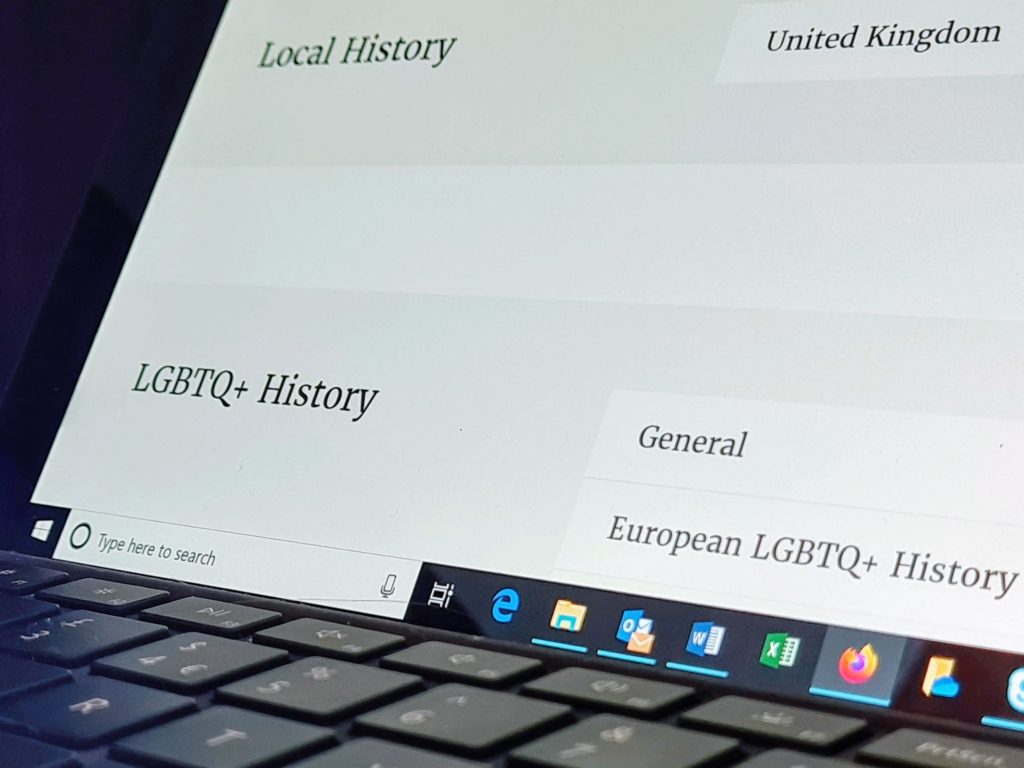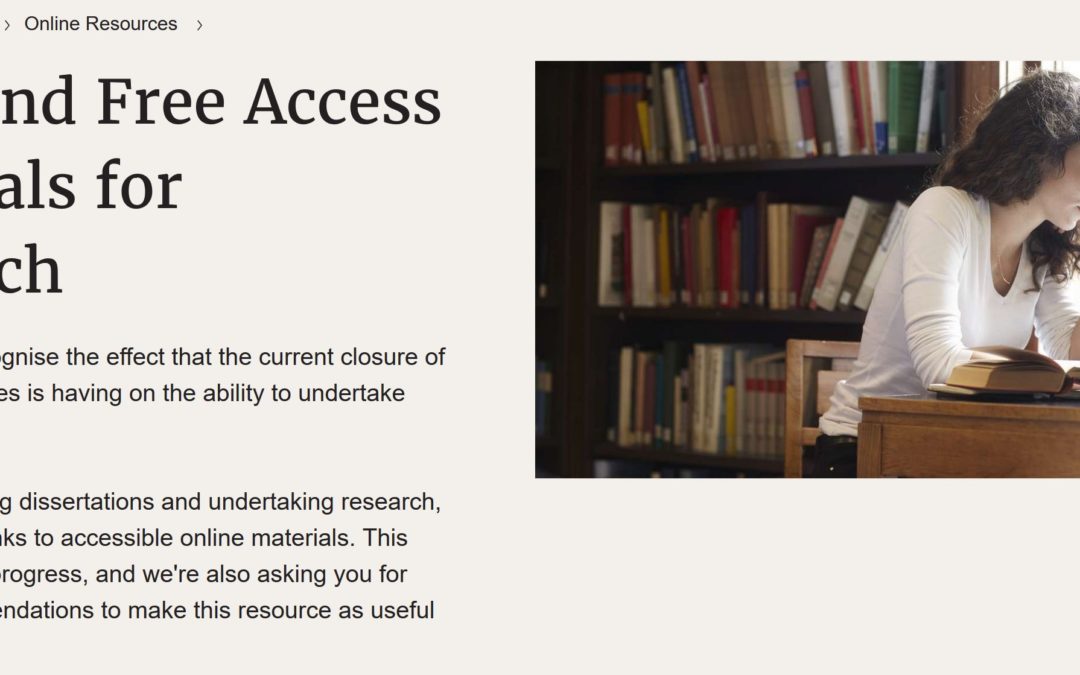By Michael Townsend
Like many places, the IHR has had to temporarily shut its physical doors to staff, students and visitors in response to the Covid-19 pandemic. This does not diminish our commitment, however, to serving communities worldwide with a shared passion for historical research. Our digital doors are still open.
To give a handful of examples, the IHR Fellows’ Seminars are now conducted online as well as a growing number of seminars for this term. Also, if you are free on Wednesday afternoon, a ‘Shut Up and Write!’ session takes place over Zoom. Moreover established research resources such as Layers of London and British History Online (all material free to individual users until the 30 September) continue to provide access to cartographic and textual research material as well as staging workshops.
Among all this activity, in April teams across the IHR, including the library, IHR Digital and the Centre for the History of People, Place and Community, compiled and published a new directory, the ‘Open and Free Access Material for Research’ guide. In the absence of access to the IHR’s physical library collections (as well as most other research libraries and archives) it is the intention of this guide to consolidate on one page as many of the growing number of freely available historical research materials available.
And since its launch we are heartened by the positive feedback we have received from academics, students and private researchers. Also we have welcomed the many suggestions of further resources to be included on the guide. Among the recent additions are links to the Extensive Urban Surveys project as well as three new sections devoted to resources on African, LGBTQ+ and rural history.

A Structure Emerges
The rapid growth of the guide is welcoming. Understandably though we do not want it to become too cumbersome to use. Therefore as new resources and sections are added a structure has begun to emerge.
- Introduction. The first section works as a general introduction.
- General. The next group of sections covers general resources. Included here are general, online secondary and primary resource collections, as well as online finding aid, bibliographies and archive guides. Some of the works you can find in this group include the British Library’s Endangered Archives Programme, the Hathi Trust digitised book library and BNF Gallica.
- Period. The next group of four sections are grouped chronologically, starting with late Antiquity to the present day. Some period specific resources here include Epistolæ: Medieval Women’s Letters, the French Revolution Digital Archive and the Windrush Stories project.
- Theme. Next comes a growing section of thematic sections arranged alphabetically. At present only three are on the guide (local history, LGBTQ+ history and rural and agricultural history) where you can find resources like the Great Irish Famine Online, selected, digitised items from the ONE National Gay and Lesbian Archives and the work done by the Cambridge Group for the History of Population and Social Structure. More sections will follow.
- Place. This group will include resources centred on a specific regions. At present here you can find resources on African history mainly concentrating at present on the 18th to the 20th century like the African Online Digital Library, British Documents on the End of Empire and the African Activist Archive. More geographic specific sections will be added in the near future.
- Media. The final section includes resources on among other subjects as oral history (e.g., the Essex Sound and Video Archive), online art and photographic archives (e.g., the TimePix photographic archive of post-war Greater Manchester), maps (e.g. selections from the National Library of Scotland map collection) and newspapers (e.g. the Library of Congress’s Chronicling America project)
Hopefully this has whetted your appetite to explore this new directory. However you can also contribute. If you have any suggestions contact us via the links below.
Email: ihr.library@sas.ac.uk
Michael Townsend is Collections and Metadata Librarian at the Institute of Historical Research. Follow him @MichaelRTownsend

